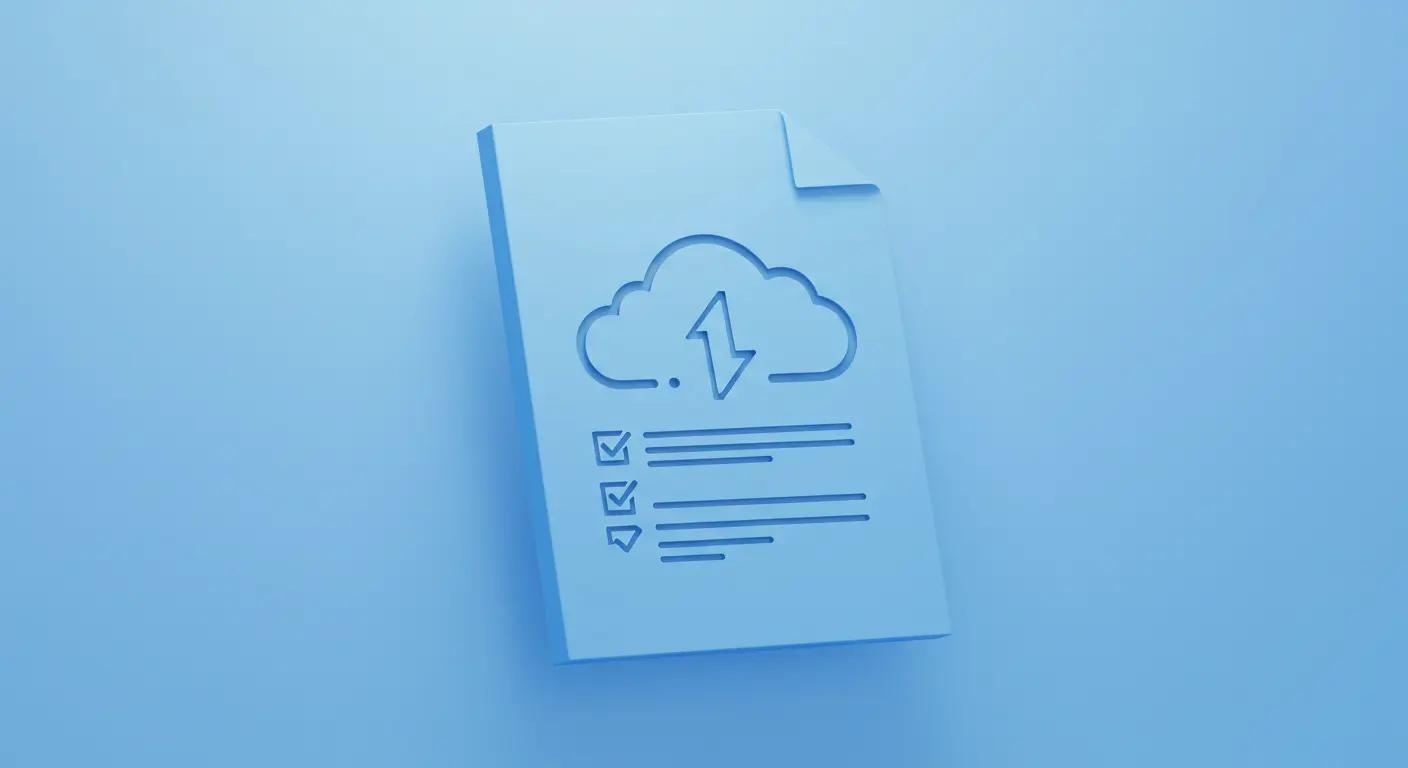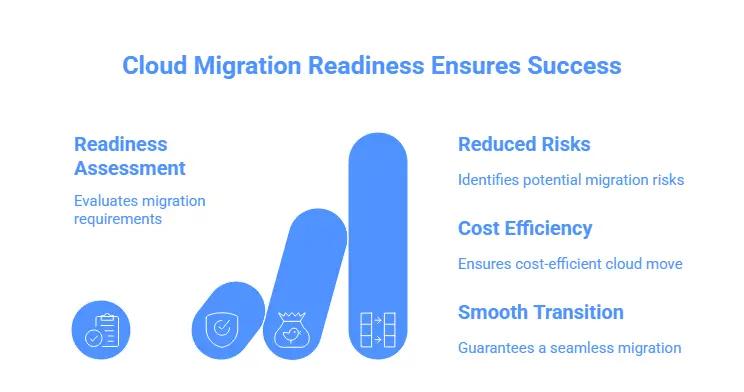
Readiness Determines Success
Migrating from on prem to the cloud isn’t just a technical upgrade — it’s a business transformation. Yet, many organizations rush into migration without fully evaluating their readiness.
A well-defined Cloud Migration readiness assessment helps you understand what’s required, identify potential risks, and ensure a smooth, cost-efficient move.
At Wanclouds, we’ve helped U.S. enterprises and public-sector organizations modernize infrastructure, cut costs, and accelerate innovation using Migration-as-a-Service (MaaS). Here’s a practical readiness checklist to guide your team before leaping.
1. Define Your Business Objectives and Migration Goals
Before you touch a single workload, clarify why you’re migrating. Ask:
- Are you aiming to reduce costs, increase agility, or modernize legacy systems?
- Which business outcomes will define success?
A clear business case ensures alignment across IT, finance, and leadership, and helps you choose the right Cloud model (public, private, or hybrid) and provider.
2. Assess Your Existing On-Prem Infrastructure
A complete infrastructure audit is the foundation of migration readiness. Document:
- Hardware, VMs, storage, and network resources
- Software dependencies and licensing
- Peak usage and performance patterns
This data helps identify which workloads are migration-ready and which may require re-architecture.
Checklist Item:
- Create a full inventory of servers, databases, applications, and dependencies.
3. Evaluate Application and Data Readiness
Not every workload can be lifted and shifted. Classify your applications, such as:
- Rehost: Move “as is” (least disruption)
- Replatform: Minor optimizations before migration
- Refactor: Redesign for cloud-native scalability
For data migration, assess:
- Data sensitivity and compliance requirements
- Volume, transfer methods, and potential downtime
- Backup, encryption, and recovery strategies
Checklist Item:
- Define the migration path for each application and dataset.
4. Review Security, Compliance, and Governance Requirements
Security and compliance are top concerns for U.S. businesses, especially in regulated industries like finance, healthcare, and government. Consider:
- Data privacy laws (HIPAA, SOC 2, GDPR)
- Encryption in transit and at rest
- Identity and access management (IAM)
- Logging and auditing frameworks
Our Compliance-first Migration Approach ensures your move to the Cloud doesn’t compromise governance or security.
Checklist Item:
- Map compliance frameworks and assign ownership for data protection.
5. Analyze Network and Connectivity Readiness
Cloud Migration depends on reliable, high-speed connectivity. Evaluate:
- Bandwidth capacity and redundancy
- Latency between on-prem and target cloud regions
- VPN, Direct Connect, or ExpressRoute options
- Network segmentation and firewall policies
Checklist Item:
- Conduct a network readiness test to ensure stable connectivity during and after migration.
6. Assess Team Skills and Organizational Readiness
A cloud-ready organization requires trained people, not just modern infrastructure. Ask yourself:
- Does your team understand Cloud operations, automation, and security?
- Do you need a partner or Managed Service Provider (MSP) to assist?
We often support teams with end-to-end migration and ongoing management, helping bridge internal skill gaps.
Checklist Item:
- Provide cloud training or leverage Migration-as-a-Service to accelerate your transition.
7. Build a Financial and Cost Governance Plan
Unexpected cloud bills are one of the biggest post-migration pain points. A solid FinOps plan helps control costs:
- Forecast TCO (Total Cost of Ownership)
- Tag resources for cost visibility
- Set budget alerts and policies
- Plan for right-sizing and reserved instances
Checklist Item:
- Define cost governance policies before migration begins.
8. Select the Right Migration Tools and Partners
Using the right automation and orchestration tools can significantly reduce manual effort and risk. Evaluate:
- Native Cloud Migration tools (AWS Migration Hub, Azure Migrate, etc.)
- Third-party tools for Multi-cloud orchestration
- Automation capabilities and rollback support
Multi-cloud Migration platform provides visibility, automation, and real-time tracking, simplifying even the most complex hybrid migrations.
Checklist Item:
- Choose a toolset that supports your Cloud provider and business model.
9. Develop a Pilot Migration Plan
Before moving mission-critical workloads, test with a pilot migration. This helps you:
- Validate configurations and performance
- Identify unexpected dependencies
- Fine-tune timelines and rollback plans
Checklist Item:
- Conduct a pilot migration for one non-critical workload to validate readiness.
10. Create a Detailed Migration Roadmap
Once you’re ready, define:
- Migration sequence and scheduling
- Downtime windows and cutover plans
- Rollback procedures and communication plans
- Post-migration monitoring and optimization
Wanclouds provides a phased migration framework that minimizes disruption while ensuring full visibility across hybrid or Multi-cloud environments.
Checklist Item:
- Build a migration roadmap with clear milestones, owners, and KPIs.

Readiness = Confidence
A successful migration begins long before data moves. By following this Cloud Migration checklist, your organization can reduce risk, control costs, and transition to the Cloud with confidence.
If your team needs expert guidance, Wanclouds can help you assess, plan, and execute end-to-end, from discovery to optimization, across AWS, Azure, IBM Cloud, and hybrid environments.
Next Steps
- Schedule a migration readiness assessment with Wanclouds.
- Explore our latest guide: A Step-by-Step Guide for On-Prem to Cloud Migration
- Discover how we help organizations simplify migration complexity with On-Premises to Cloud Migration.